Search Results
Showing results 1 to 20 of 70
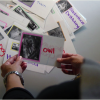
Sound Charades
Source Institutions
In this game, learners create flash cards with an image on one side (of an animal, for example) and the sound that animal makes on the other.
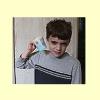
Mix and Match
Source Institutions
In this activity (7th activity on the page), learners use their sense of hearing to find a "sound match." Learners shake containers filled with items like dry seeds, sand, beans, etc.
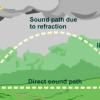
The Rumblin' Road: Determining distance to a Thunderstorm
Source Institutions
In this activity, learners discover how to determine the distance to a lightning strike or nearby thunderstorm.
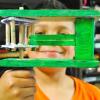
Matraca
Source Institutions
In this activity, learners create a traditional Mexican noisemaker (a matraca) using cardboard, craft sticks, and a wooden dowel.
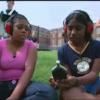
Extreme Sounds
Source Institutions
This activity (on page 2 of the PDF under SciGirls Activity: Extreme Sounds) is a full inquiry investigation into sound.
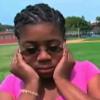
Screaming Balloon
Source Institutions
In this quick activity (page 1 of the PDF under SciGirls Activity: Extreme Sounds) about sound vibrations, learners will investigate which small objects, such as coins, hex nuts, or marbles, produce t
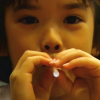
Oboe? Oh, Boy!
Source Institutions
In this activity, learners create a straw oboe to explore sound and pitch.
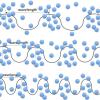
Light and Sound
Source Institutions
In this four-part activity, learners explore light and sound through a variety of hands-on investigations.
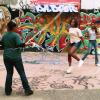
Double Dutch Distractions
Source Institutions
This activity (page 2 of the PDF under SciGirls Activity: Double Dutch) is a full inquiry investigation into whether hearing or seeing has a bigger effect on jump rope performance.
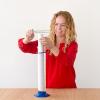
Organ Pipe: Get Bach to the fundamentals
Source Institutions
If you got a big graduated or clear cylinder, water, a pipe, and a tuning fork, you've got a sound learning opportunity! Learn about resonance with this Exploratorium Science Snack.
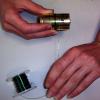
Yogurt Cup Speakers
Source Institutions
Learners build a simple electromagnet, then use this electromagnet to transform a yogurt container into a working speaker. They can connect their speaker to a radio and listen as it transmits sound.
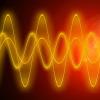
Name That Frequency
Source Institutions
This activity was designed for blind learners, but all types of learners can model how vibrating particles, such as in a sound wave, bump into other particles causing them to vibrate, and that the vib
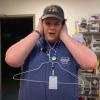
Metal Noise Maker
Source Institutions
In this activity, learners explore how sound travels through solid objects better than through air. Leaners attach a metal clothes hanger to a piece of string and hold it to their ears.
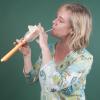
Waterbottle Membranophone
Source Institutions
In this activity, you'll use a straw, a water bottle and a paper tube to make an instrument that's very much like a saxophone.
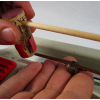
How to Make an Audio Tape Bow
Source Institutions
From this How To slide show, you create an Audio Tape Bow that can play distorted audio sounds by running it across a tape head.
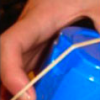
Making Vocal Cords
Source Institutions
In this activity, learners imitate the way vocal cords work by building a model from a plastic cup, rubber band, and a straw.
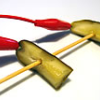
Pickle-oh!: Musical Pickle Instrument
Source Institutions
What's a Pickle-Oh? Two pieces of pickle on a stick are connected to a Pico Cricket (micro controller). When you slide the pickles apart the note changes.
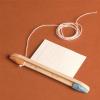
Bee Hummer
Source Institutions
In this activity, learners investigate sound and vibration by making a "bee hummer"--a toy that sounds like a swarm of buzzing bees when you spin it around.
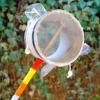
Torsion Drum
Source Institutions
In this activity, learners build a musical drum using a cardboard tube, plastic wrap, and beads.
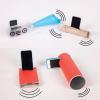
Tune Booster
Source Institutions
In this activity, learners build unique sound enhancing inventions with items from around the house to amplify sound from their smart phone's speakers.
